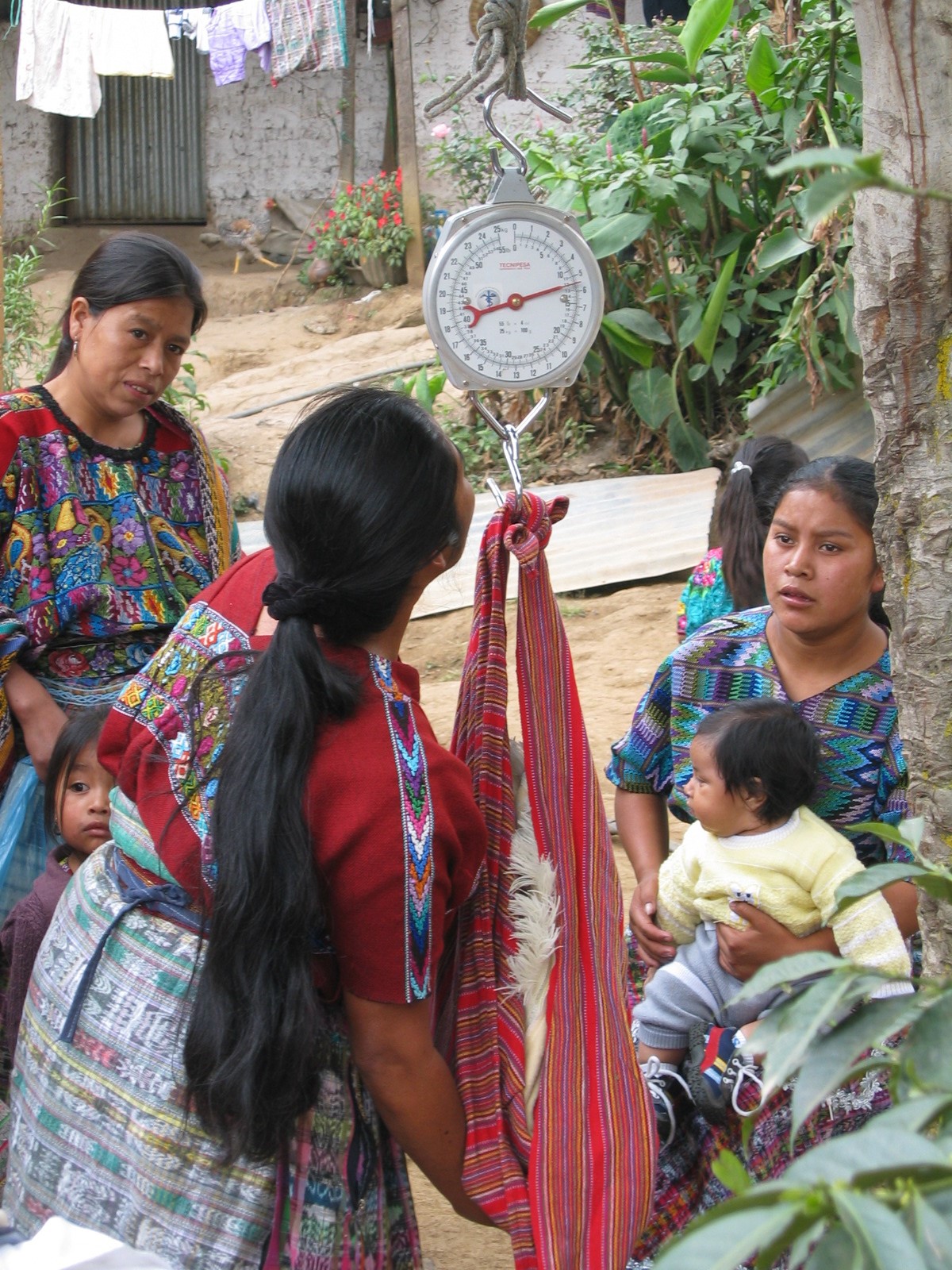
Unintended consequences: When hygiene programs burden women

Primary care in a Kaqchikel Maya community in rural Guatemala, checking monthly growth of infants.
One afternoon on a Guatemalan coffee plantation high up in the mountains, I sat on a wobbly child-sized chair next to my friend Ceci. She, along with several other Kaqchikel Maya women, were crammed into the makeshift offices of an international NGO, listening to yet another lesson on hygiene. A chorus of giggles errupts around the room as the group is instructed to sing the birthday song while rubbing their hands together in a pantomime of hand washing. The poster demonstrating ‘proper’ handwashing shows a pair of white hands using a pump-dispenser of soap and a faucet with taps, none of which are part of the material reality in which the women live. Afterwards, as we walked back up the dusty path to her house, I asked Ceci why she attends these sessions. She looked down at the bottle of cooking oil and bags of rice and beans in her marketbag and smiled. These were the ‘gifts’ given for attending the sessions; for Ceci, they were enough, even though she wouldn’t be able to implement the hygiene strategies in her home.
I have sat in on countless hygiene lessons like this one: well-intentioned lessons that assume no existing local knowledge and instructions for household hygiene practices that are unattainable in the local context. These kinds of lessons, and the unequal power dynamics they illustrate, are often made attractive through incentives like those Ceci and her friends received. Programs delivered in marginalized communities—particularly by foreigners—often compel problematic gratitude from their participants, a tacit obligation of participants to be grateful for whatever bits of water, sanitation, and hygiene (WASH) programming comes their way.
Indisputably, there have been major WASH successes in the past 50 years. New technologies have improved water filtration and purification and expanded access to safe sanitation, resulting in reduced diarrheal morbidity. And the promotion of oral rehydration has reduced child diarrheal mortality. Despite these gains, childhood diarrheal disease remains a leading global cause of morbidity and mortality for children under five years old. Further, WASH efforts not fully integrated into the appropriate cultural contexts can have unintended consequences. As I have witnessed in rural Guatemalan communities, diarrhea is now often stigmatized—hygiene lessons that diarrhea means your household is ‘dirty’ have permeated communities, even while access to clean water and other essential tools for hygiene remain elusive. Households, and the women who so often run them, are blamed for failures of hygiene when their children fall ill with diarrhea.
To defeat diarrhea, we cannot expect mothers in marginalized communities around the world to cover for systemic failures. While a homemade oral rehydration solution can ‘empower’ a caregiver to successfully keep a child hydrated a home during a bout of diarrhea, it can also enable governments to fail in the provision of clean water to all communities. Further, WASH programming that only focuses on women as caregivers at the community level may seem a common sense reflection of local realities, such approaches only serve to entrench gender inequalities and the reliance of women’s unpaid labor in global health.
My new book Underbelly (MIT Press) explores how systemic power imbalances in global health are reflected in our response to childhood diarrheal disease and explores co-design approaches to making our efforts more equitable. Underbelly is available open-access through MIT Press (Spanish edition forthcoming); author proceeds from sales go to frontline health workers in Guatemala.
Rachel Hall-Clifford is a medical anthropologist working in global health. She is Assistant Professor of Human Health and Sociology at Emory University, where she leads the Co-Design Lab for Health Equity.


